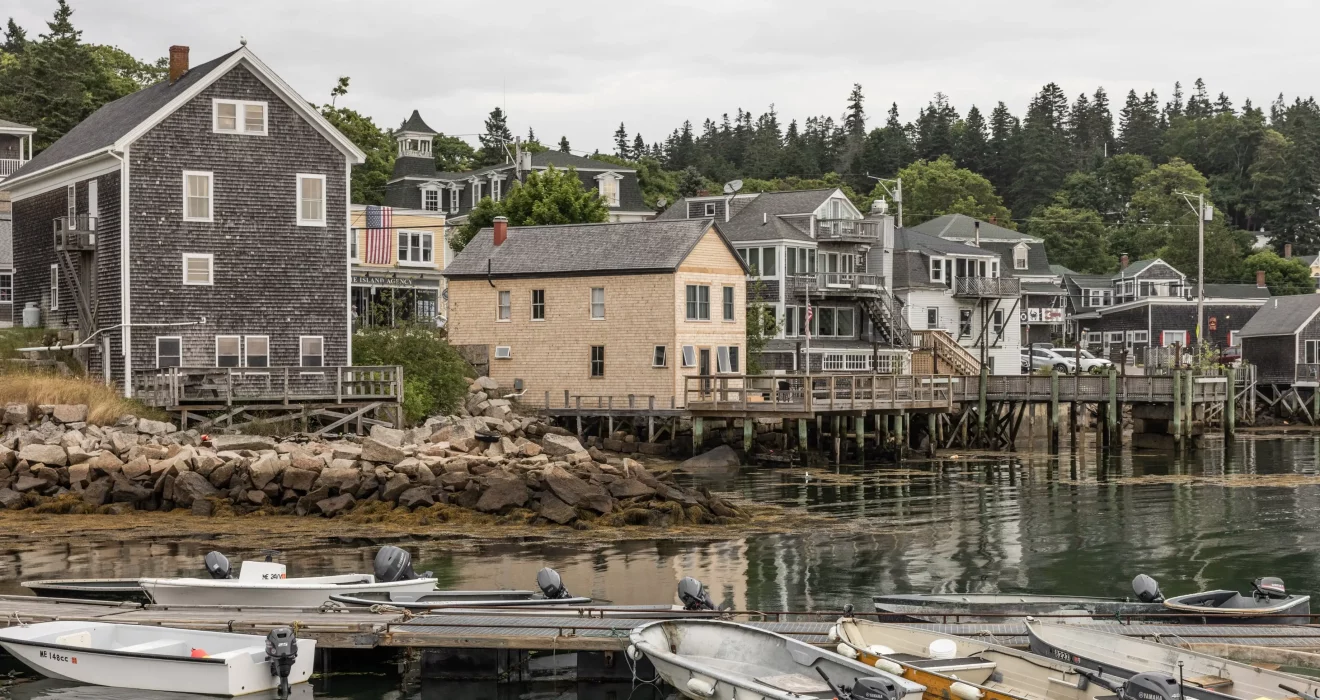In a significant step towards sustainability, five towns and two regional nonprofits in southern Maine collaborate on a program launching in mid-2024. Fueled by a substantial $800,000 grant from the U.S. Department of Energy, this initiative aims to empower residents in overcoming barriers to climate-friendly home energy upgrades. Maine, heavily reliant on home heating oil, faces environmental challenges from residential emissions. It makes it a crucial focus for climate-conscious efforts. The program’s main goal is to address funding gaps. And reduce confusion about government incentives, helping residents cut heating costs and emissions. At the core of this groundbreaking effort is the deployment of AmeriCorps members as “energy navigators”. It offers personalized, one-on-one energy coaching to residents. These Maine Town Energy Navigators will not only identify the most effective retrofits for each home. But also guide residents through the intricate process of applying for tax credits, rebates, and other incentives.
The program allocates funds to offset residents’ costs, removing financial barriers to sustainable home energy improvements. Southern Maine communities join forces for a transformative initiative. However, introduction of “energy navigators” represents a strategic, community-driven effort. And also it is to accelerate climate-friendly practices, fostering a resilient and environmentally conscious region.
The Federal Grant Initiative
Five towns and two regional nonprofits unite for a three-year, $800,000 grant from the U.S. Department of Energy to launch an innovative program in mid-2024. in addition, this initiative aims to address cost gaps and alleviate confusion. Residents strive to reduce heating costs and emissions by navigating government rebates.
Guiding Residents to Energy Efficiency
The grant will fund AmeriCorps members to serve as “energy navigators.” These Maine Town Energy Navigators will offer personalized energy coaching to resident. And identifying the most cost- and emissions-effective retrofits for each home. They will also assist residents in applying for tax credits, rebates, and other incentives. Which thereby making the entire process more accessible.
Direct Financial Support
The grant allocates around $500,000 to directly cover residents’ remaining costs, effectively eliminating the upfront capital barrier. So, this financial support is anticipated to encourage more households to pursue energy-reducing and cost-saving improvements in their homes.
Southern Maine’s Collaborative Approach
The towns of Kennebunk, Kennebunkport, Wells, Ogunquit, and Kittery, along with Southern Maine Planning and Development Commission (SMPDC) and York County Community Action Corporation, collaborate on this groundbreaking project. SMPDC will host the AmeriCorps navigators. While the county action agency will establish the Southern Maine Energy Fund to finance projects and provide oversight for retrofits and installations.
Overcoming Barriers in Maine
Maine stands at the forefront of a pivotal transition to shift from reliance on home heating oil towards more sustainable, energy-efficient alternatives. The state’s heavy reliance on this traditional heating source has not only heightened environmental concerns. But has also contributed significantly to climate change. Efforts are made to overcome these challenges. And also these efforts promote the adoption of electric heat pumps, heralded as a more environmentally friendly alternative.
However, the journey towards widespread adoption of energy-efficient solutions is not without its hurdles. Residents, despite the appeal of electric heat pumps, often find themselves hindered by upfront costs and a maze of confusing incentive programs. The program’s “energy navigators” emerge as a beacon of support in navigating these intricate challenges. Specially trained, these navigators are equipped to assist residents in overcoming financial barriers and unraveling the complexities of incentive programs. By doing so, they aim to empower residents to make informed decisions. And optimizing the benefits offered by available incentives and contributing to a more sustainable and eco-conscious living environment in the state of Maine.
A Pilot Program with Future Implications
In the culmination of years of collaborative efforts, the participating towns have laid the groundwork for a transformative regional initiative. This pioneering program, set to launch in the upcoming summer or fall, embodies a forward-thinking approach to addressing the pressing challenges of home energy upgrades. Its pilot nature extends beyond immediate benefits, serving as a testing ground for innovative solutions that could significantly impact the state’s sustainable living landscape.
As officials prepare for the program’s implementation, the emphasis on evaluation becomes paramount. The pilot’s success metrics will not only gauge the effectiveness of the “energy navigators” and the financial support mechanisms but will also provide invaluable insights. These insights are poised to inform decision-makers on the scalability of similar efforts statewide, unlocking the potential for a more expansive and impactful rollout. Thus, the program’s pilot phase holds the promise of not only enhancing individual households’ energy efficiency but also of seeding broader initiatives that can propel Maine towards a more sustainable and energy-efficient future.
Conclusion
As the eagerly anticipated program prepares to launch in the upcoming summer or fall, the collaborative spirit among towns, nonprofits, and dedicated AmeriCorps members promises a groundbreaking shift in how home energy upgrades are approached in Maine. This concerted effort goes beyond a local initiative; instead, it signifies a transformative approach poised to resonate across the broader landscape of sustainable living.
At its core, the program stands as a testament to the collective commitment of Maine communities towards fostering a more sustainable and energy-efficient future. The trifecta of financial support, personalized coaching through the “energy navigators,” and a unified regional effort underscores a holistic strategy. By addressing financial barriers and demystifying incentive programs, the initiative aims to empower residents to embrace energy-efficient solutions confidently.
As these Maine communities pave the way forward, they lay the foundation for a more resilient and environmentally conscious future. The program not only represents a local solution but also serves as a beacon of inspiration, showcasing how collaborative efforts can shape a more sustainable, energy-efficient, and ecologically responsible tomorrow.

